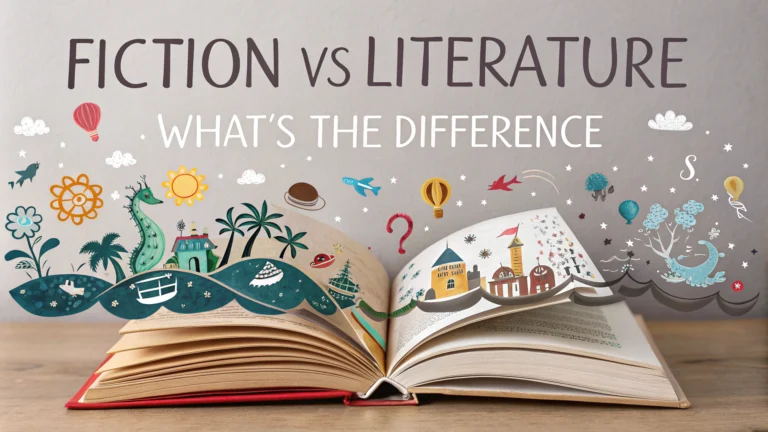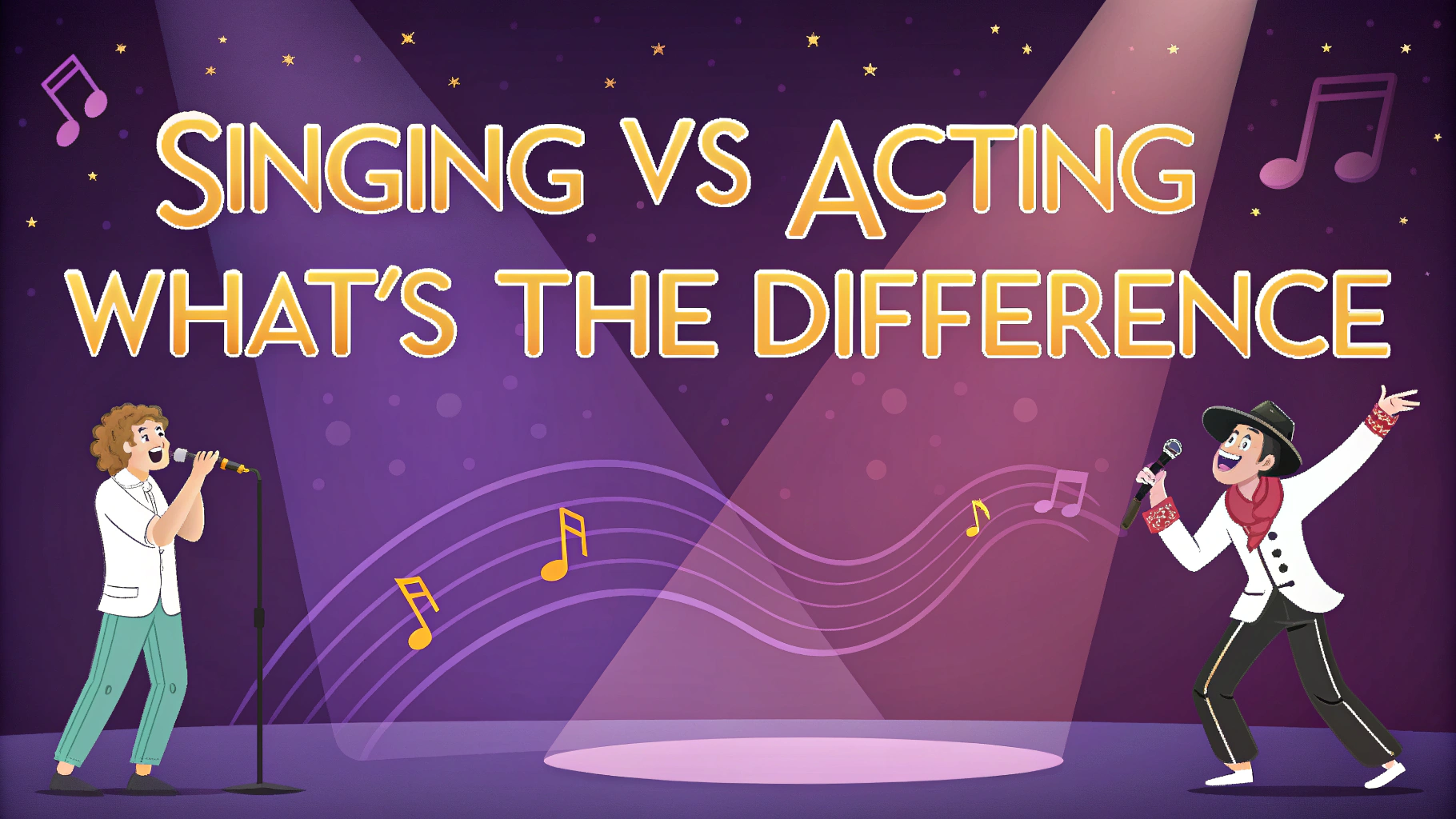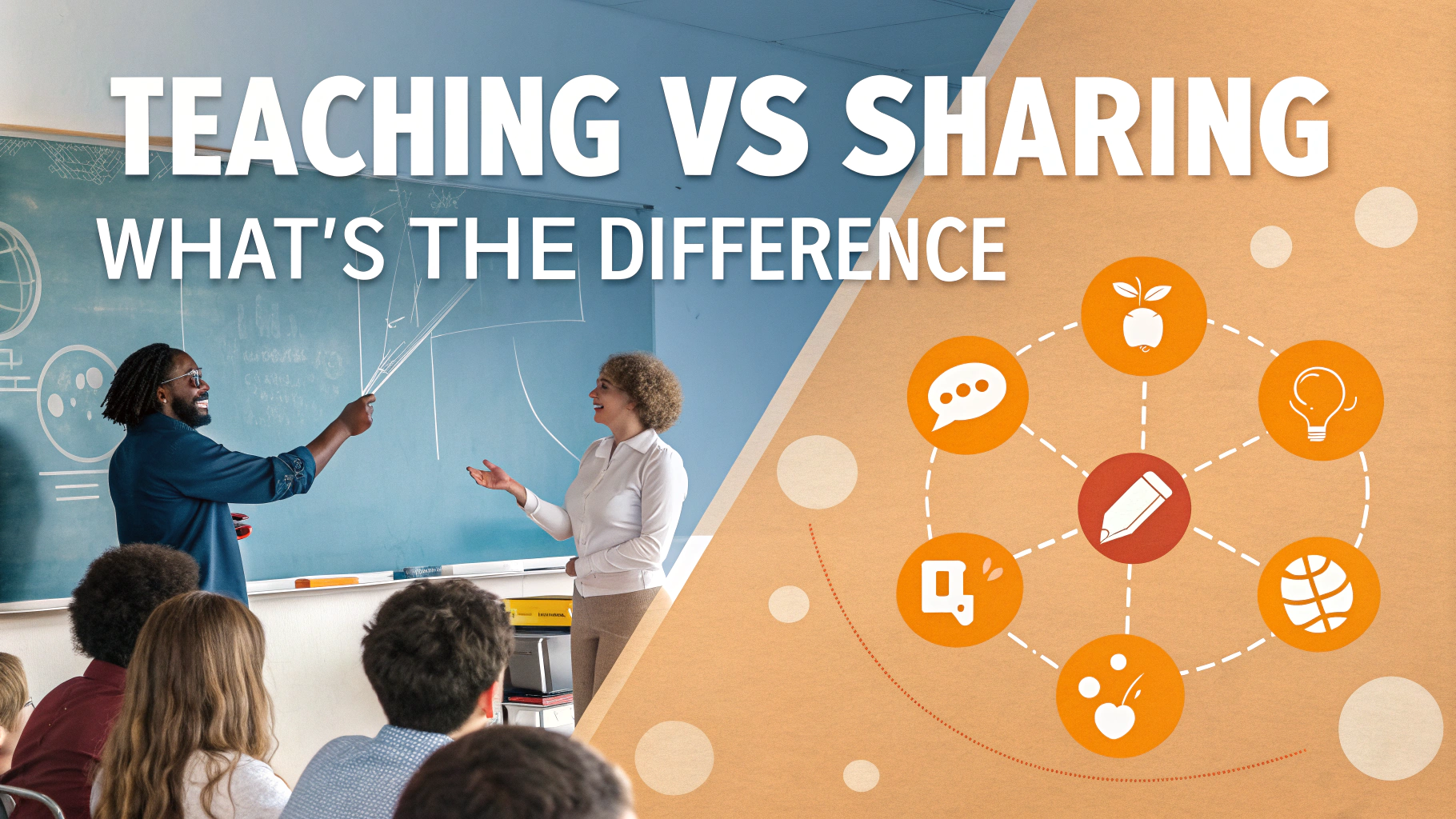The ongoing debate between fiction and literature often creates confusion among readers and writers alike. Both categories share storytelling elements but differ in their approach, purpose, and cultural significance.
While all literature can be fiction, not all fiction qualifies as literature – understanding these distinctions helps readers make informed choices and writers refine their craft.
Key Differences in Style and Purpose
- Fiction focuses primarily on entertainment and storytelling
- Literature emphasizes artistic merit and deeper themes
- Fiction often follows market trends and genre conventions
- Literature typically challenges readers with complex themes and structures
Characteristics of Literary Fiction
- Language complexity and sophisticated writing techniques
- Character development over plot-driven narratives
- Themes that explore universal human experiences
- Ambiguous endings that prompt reflection
Commercial Fiction Elements
- Plot-driven storytelling with clear resolutions
- Genre conventions that meet reader expectations
- Accessible language for broader audience appeal
- Entertainment value as primary focus
| Aspect | Fiction | Literature |
|---|---|---|
| Primary Goal | Entertainment | Artistic Expression |
| Writing Style | Accessible | Complex |
| Target Audience | Genre-specific | Universal |
“Literature is the art of discovering something extraordinary about ordinary people, and saying with ordinary words something extraordinary.” – Boris Pasternak
Critical Elements That Define Literary Works
Fiction and literature share common ground while maintaining distinct characteristics that set them apart. Understanding these differences helps readers choose books aligned with their interests and writers develop their creative approach.
This guide explores core elements and practical distinctions between fiction and literature to enhance your reading and writing experience.
The Balance of Plot vs Character Development
- Plot-driven stories focus on external events and action
- Character-centric narratives examine internal growth
- Literary works often prioritize psychological depth
- Commercial fiction emphasizes story progression and pacing
Language and Writing Techniques
| Commercial Fiction | Literary Fiction |
|---|---|
| Direct language | Metaphorical expression |
| Fast-paced narrative | Reflective pacing |
| Clear dialogue | Layered subtext |
Theme and Message Integration
- Universal themes vs genre-specific topics
- Subtle messaging through symbolism and metaphor
- Social commentary woven into narrative
- Reader interpretation vs explicit meaning
Market Positioning and Publishing Paths
Traditional publishers often separate literary and commercial fiction into different imprints. Understanding these distinctions helps writers target appropriate publishing channels.
- Literary magazines vs genre publications
- Marketing approaches for different audiences
- Review considerations and critical reception
Bridging Commercial and Literary Elements
Many successful works combine elements from both literary and commercial traditions. This hybrid approach creates accessible yet thought-provoking content.
“Great books don’t have to be hard to read; great books have to be worth reading.” – John Green
Reader Engagement and Choice
Choose books based on your reading goals and preferences rather than perceived literary merit alone.
- Consider your reading purpose
- Match books to your current mood
- Balance between entertainment and enrichment
Building a Balanced Reading Experience
Mix different types of books to develop a well-rounded reading practice. Create a reading list that combines commercial and literary works for a rich literary experience.
| Reading Goal | Suggested Mix |
|---|---|
| Entertainment | 70% Commercial, 30% Literary |
| Analysis | 40% Commercial, 60% Literary |
Fiction vs Literature FAQs
General FAQs:
Q: What is the main difference between fiction and literature?
A: Fiction refers to any imaginative written work, while literature typically encompasses works of superior or lasting artistic merit. Literature can include both fiction and non-fiction works that are considered culturally, artistically, or intellectually significant.
Q: Can fiction be considered literature?
A: Yes, fiction can be considered literature when it demonstrates exceptional artistic quality, cultural significance, or intellectual depth. Examples include works like “To Kill a Mockingbird” and “1984.”
Q: What makes a work “literature” rather than just fiction?
A: Literary works typically feature:
- Complex themes and deeper meanings
- Sophisticated writing techniques
- Cultural or historical significance
- Universal human truths
- Lasting impact on readers and society
Long-tail Keyword FAQs:
Q: What’s the difference between commercial fiction and literary fiction?
A: Commercial fiction focuses primarily on entertainment and plot, while literary fiction emphasizes artistic merit, character development, and thematic complexity.
Q: How do you know if a book is considered classic literature?
A: Classic literature typically:
- Has stood the test of time
- Influences other writers and works
- Addresses universal themes
- Is widely studied in academic settings
- Maintains cultural relevance across generations
Q: Why is genre fiction often not considered literature?
A: Genre fiction sometimes prioritizes entertainment and genre conventions over literary elements. However, some genre works like “1984” (science fiction) or “Rebecca” (gothic romance) are considered literature due to their artistic merit.
Q: What makes contemporary literature different from modern fiction?
A: Contemporary literature refers to works written in the present era (typically post-1970s), while modern fiction specifically refers to works from the modernist period (roughly 1900-1950).
Q: Are young adult novels considered literature or fiction?
A: Young adult novels are primarily categorized as fiction, but some, like “The Giver” or “The House on Mango Street,” are considered literature due to their artistic merit and cultural impact.
Q: What’s the difference between literary merit and commercial success?
A: Literary merit is based on artistic quality, thematic depth, and cultural significance, while commercial success is measured by sales and market popularity.
Q: Can non-English fiction be considered Western literature?
A: Yes, translated works like “One Hundred Years of Solitude” or “The Name of the Rose” are considered part of Western literature when they significantly influence or reflect Western literary traditions.
Related Long-tail Keywords:
| Keyword | Search Intent |
|---|---|
| difference between commercial and literary fiction | Comparative/Educational |
| what makes a book classic literature vs fiction | Definitional |
| contemporary literature vs modern fiction examples | Comparative/Historical |
| how to tell if a book is literature or just fiction | Analytical |



















